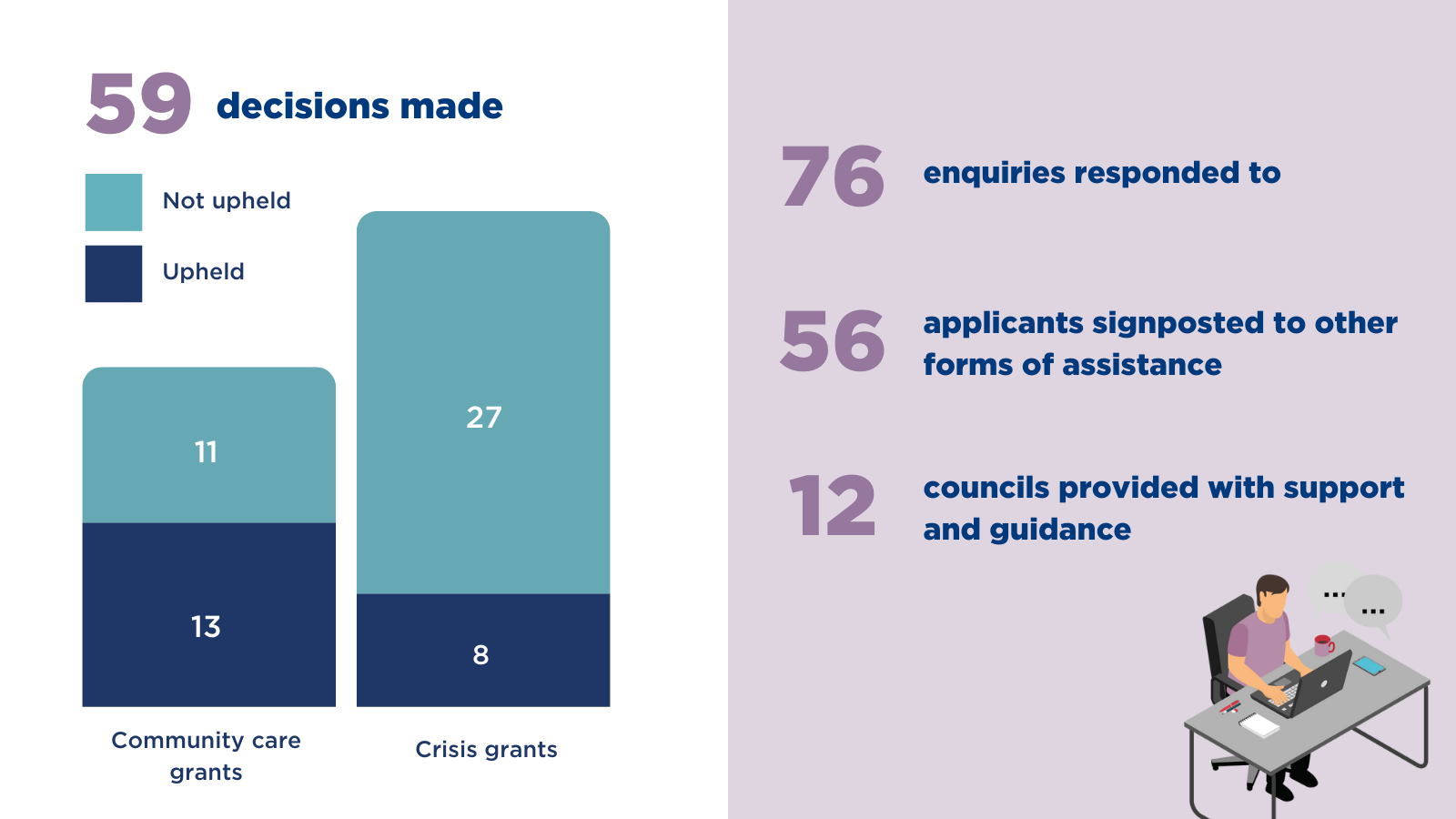
During October we
responded to 76 enquiries
- made 59 decisions
- 24 community care grants
- 35 crisis grants
- upheld 13 (54%) of community care grants and 8 (23%) of crisis grants
- signposted an additional 56 applicants to other sources of assistance
- received 12 enquiries from local council liaison contacts seeking advice.
Spotlight on the impact of Scottish Welfare Fund High Most Compelling priority rating
On Tuesday 19 November 2024, the Ombudsman published a report spotlighting concerns about the fairness and consistency of grants awarded through the Scottish Welfare Fund.
The report highlights issues with the distribution of the Fund, which provides grants to those in crisis.
It focuses on the application of the High Most Compelling (HMC) priority rating by some local authorities, which limits funding to individuals in severe crisis.
A free webinar which will include Glasgow City Council, the Ombudsman and others will be hosted at midday on 4 December 2024 discussing the report.
Support and Intervention Policy
We escalated two recurring issues via level one of our Support and Intervention Policy.
The first issue concerned a local authority's misinterpretation of available information when assessing whether applicants met the qualifying conditions for community care grants.
The second issue involved a local authority's decision that health benefits should be used to purchase items, rather than the fund providing them. We highlighted that this approach is not in keeping with the SWF guidance.
Case studies
Reasonable adjustments
C asked us to review the Council’s decision on their crisis grant application. C applied for money for food as their income reduced when their discretionary housing payment was stopped. Throughout the application process, C said that they need to communicate in writing as they were neurodiverse and were unable to communicate verbally.
The council made an award for food only. C asked the Council to review their decision as the amount awarded did not meet their needs. The Council made a number of attempts to contact C by phone to verify their identity but were unable to reach them. As alternatives, they suggested that C visit the Council office, or that a home visit could be arranged. C stated that neither of these options were suitable as they would require C to communicate verbally. The Council did not change their original decision and no further payment was made.
We reviewed the Council's file and contacted C by email. C explained that they have dietary requirements related to a food intolerance and so must avoid tinned and processed products. We did not agree with the amount awarded by the Council. We assessed that they had made inadequate enquiries with C to determine an appropriate award sufficient for C’s needs. We instructed the Council to make an additional payment of £63.00.
We also fed back to the Council regarding their communication with C. We determined that repeatedly contacting the applicant by phone and suggesting face-to-face contact did not meet their needs and was not in line with the principles of fairness, dignity and respect that are embedded throughout the guidance.
You can find more case studies in the searchable directory on our website.